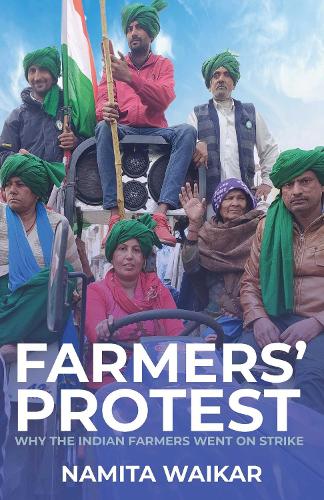
Farmers' Protest: Why the Indian Farmers went on Strike
(Paperback)
Publishing Details
Farmers' Protest: Why the Indian Farmers went on Strike
By (Author) Namita Waikar
Melbourne University Press
Melbourne University Press
12th February 2025
Australia
Classifications
General
Non Fiction
Environmental monitoring
Pollution control
Greenhouse gas emissions technologies
Agriculture and farming
Physical Properties
Paperback
256
Width 1mm, Height 1mm, Spine 1mm
1g
Description
The first responders to India's climate challenges Under colonial rule in India in 1917, Mohandas K Gandhi led a satyagraha alongside local farmers in Bihar, resulting in what would become the non-violent movement for India's independence. More than a century later, one of the largest non-violent farmers' protests in recent world history took place in New Delhi. The unrest began in Punjab and Haryana in June 2020 and reached India's capital city in November 2020. By January 2021 hundreds of thousands of farmers and farm labourers demonstrated against three draconian farm laws passed at the height of the COVID-19 pandemic. The farmers' protest continued until the Indian Government finally relented and withdrew the laws. Most people living in towns and cities in India today have been cut off from their rural roots. They know little about how their food reaches them from farm to table. They know even less about the lives of the farmers and farm labourers who produce this food. Farmers' Protest tries to bridge this gap as it narrates why Indian farmers were compelled to resist, and how they are the first responders to the challenges created by climate change.
Author Bio
Namita Waikar is the author of The Long March, a novel about the agrarian crisis in India that triggered a farmers' protest movement. Waikar studied biochemistry at the University of Mumbai and is a partner in a chemistry databases firm, a culmination of her work as a biochemist and a software project manager. She is co-founder and managing editor at the People's Archive of Rural India (PARI), where she also writes for and anchors the Grindmill Songs Project. She lives in Pune.
